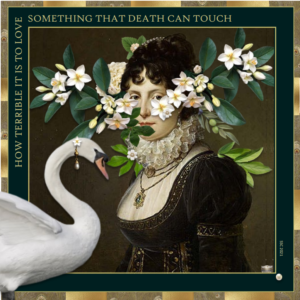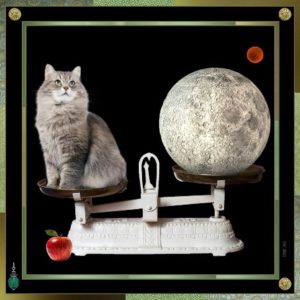During Challenge Poverty Week 2022, we are using our blog and social media to give a platform to members of the Commission’s Experts by Experience Panel who will be sharing their personal views and insights into poverty throughout the week.
The Commission’s principles commit us to amplifying the voices of experts by experience. Contributions from individuals reflect their personal perspectives and opinions are not necessarily the views of our Experts by Experience Panel or the Commission as a whole.
On day 3 of Challenge Poverty Week 2022 we are sharing art from two of our Panel members, Heike and Sasha.
The following poem, Crow’s Final Lament, was written by Panel member, Heike.
Crow’s final lament
Perched on top of the church steeple
Crow noisily proclaims the arrival of Fall
a flash of purple feather glints
in the weakening sun
Crow observes his territory below
a patchwork quilt of russet and green
humans the size of ants rushing from A to B
malevolence penetrates the chilly air
Crow shivers, not troubled by the autumnal decay
nor the arrival of honking geese
Crow shivers sensing an invisible veil of doom
has engulfed the land
as conkers fall from trees
and squirrels squabble
as golden sorrows warm the roots of trees
and mist and ice bring calm
time is running out,
faster and faster slipping between the cracks
Crow gathers feathery friends
church bells ring out in anger
together they sing a eulogy to the rising sun
dawn trembles
Crow sweeps down and lands between the graves of stone
the dead they slumber
yet things are not what they seem
humanity hangs her head in shame
Crow sings his final lament
about poverty and human indifference
Collages by Panel member, Sasha
The following collages have been created by Panel member, Sasha. Sasha has written a blog to accompany one of her collages, which draws links between experiences of poverty past and present: a pandemic, the experiences of disabled people, inequality and the state.
Breath. Blood. Bone
One of the things I most enjoy about my job as a visual artist is research. The downside is that it’s very easy to get distracted by random stuff, think ‘wow, interesting’ and after hours of googling, nothing is down on paper. But sometimes, a story leaps out and it’s impossible to resist the urge to find out what happened next.
And so…
On September 14th 1904, a farmer, Ted Higham, came across a dead body behind Moss Lane, then a rural area outwith Preston.
The smartly dressed man had bullet wounds to his head and in the pocket of his overcoat there was a note.
‘In Loving Memory of Harry Place (Edward Henry Place) who succumbed to nervous debility and severe mental depression. Born January 29th 1874.’
By the next morning enormous excitement had been generated and the Lancashire Daily Post ran the story with banner headlines:
HOWICK MYSTERY – REMARKABLE FAREWELL MESSAGE – UNKNOWN LADY AT THE BOOKING OFFICE
I came across Harry Place’s sad end completely by accident and was so troubled and intrigued by it, I set out to discover more about him. Gradually, I’ve been able to put together a chronicle of the events leading to his death and its aftermath. It’s a remarkable tale of a lost fortune, secret marriages, piracy, violence, and forbidden love.
But most of all, it’s the story of a family torn apart by the ‘White Death’, Tuberculosis, a contagion which also had a huge impact on my own childhood sixty years later.
For me, what gives Harry’s story such resonance is how rapidly his life was ‘overtaken by events’. In the run-up to David Cameron’s election as Prime Minister, he gave a speech based on the premise that birth should not be destiny. Yes. Well. We can all hope. However, all things being unequal, Harry ought to have been destined for a comfortable and comparatively privileged existence, climbing the social ladder in the golden years before the Great War.
His father, Matthew, was a successful dentist and town councillor. His maternal grandfather a superintendent of police, and his paternal step-grandfather, a pillar of the East India Company. They, in turn, were the children and grandchildren of prosperous merchants, surveyors, adventurers, freemen of the City of London. The ‘thrifty and industrious classes’ so beloved of Winston Churchill.
The foundations of the Place household looked solid enough but something beyond their control, a pandemic, began a chain reaction, resulting ultimately in Harry’s suicide. The death of his parents from TB sent shock waves through the extended family; Things fell apart, at first slowly, but then with terrifying speed as the generations imploded.
‘Respectable’ middle class people, once accustomed to making charitable gestures, suddenly found themselves beholden to the institutions of the state. Orphanages. Prisons. Workhouses. Asylums. Cheap lodgings. Even cheaper lives. I doubt they imagined it would ever happen to them.
After all this, I couldn’t let Harry simply disappear into history again and so my next commission, thanks to Disability Arts Online, is to create thirty portraits from the Place family tree. They’ll be strange and uncanny, but beautiful too. I want people to know how easy it is to be engulfed by the unimaginable.
Power Imbalance
This image is about the power imbalance in Scotland – resources and influence are concentrated in the hands of a small group of people, whilst the majority of us are constantly worrying about how we’ll manage* to pay for the essentials. *Or how we won’t.


